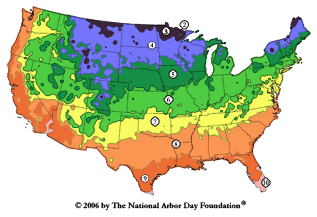So, from Raintree, these are my choices for zone 9:
The Chandler Blueberry
It has the longest ripening season of any blueberry, providing more than a month of sweet, firm delicious fruit.
$13.50 / plant
The Elizabeth (no photo)
It's back! Blueberry gourmets have long been trying to find a source of Elizabeth! This variety developed in New Jersey in the 1960's is sought for its superior flavor. $12.50 / plant
Misty Blueberry
Hardiness to 0° F, a very low chilling requirement of only 150 chilling hours and a tolerance for higher pH soils makes this a perfect USDA Zones 7-9 choice. $14.50 / plant
This looks like a good plant for this area.
Reveille
The unique crisp, almost crunchy texture and the outstanding popping flavor make this a must for your blueberry patch. $8.50
Unfortunately, it says they need 600 chilling hours... may be too little for here.
Sharp Blue
If you are in the South, enjoy delicious fresh blueberries year around! Sharpblue is the most adaptable variety in low chill areas. $8.50
This looks like a good choice for us.
Sunshine
Hardiness to 0 degrees F, a very low chilling requirement of only 150 chilling hours and a tolerance for higher pH soils makes this a perfect choice for gardeners in the Pacific Northwest, the South or in California. One gallon plants. $12.50
Hmmm... looks possible
Showing posts with label blueberries. Show all posts
Showing posts with label blueberries. Show all posts
Monday, April 26, 2010
Blueberry Bushes
A while back, Tammy told me that she'd ordered her blueberry bushes from The Raintree Nursery in Washington. I've been wanting some blueberry bushes for a few years now, especially since my son has demonstrated that he will eat them until he turns blue (or at least his poops do!). I guess she also picked up some bushes at Costco, of all places, and her general notion was that both places have good prices.
Multiple Bushes and Varieties and Know How Many to Buy
What little I know of blueberries is that it's good to mix two varieties for pollination purposes (though I'm unsure why you need different varieties to cross pollinate... wouldn't you end up with a hybrid fruit then?), since they're not self-pollinating.
The Blueberry site also notes the importance of choosing varieties that have overlapping seasons, as well as counting on two plants per family member. Here's a good list of seasons and varieties and here's some more info from the blueberry site:
Pollination: Most fruit trees, including blueberries have both male and female organs on the same flower, but not all are self pollinating. The best bet for blueberries is to have different varieties of blueberries within 100 feet, so bees can travel and cross pollinate. Blueberries cannot be fertilized by their own pollen!
You may want to select varieties that ripen at different times or feature large fruit (best for fresh eating and desserts) or small fruit (best for muffins and pancakes). Bushes with brilliant fall color or different growth habits offer the gardener lots of choices to use throughout the landscape. For blueberry lovers, allow at least two plants per family member.
Zones, Baby, Zones
It's also important to make sure you get varieties that do well in your zone. I'm in an odd area, with Northern California's micro-climates having a strong effect, it's hard to know on any given day what the exact climate is. However, using this guide, I was able to guesstimate that we're in zone 9. The guide is great because you can look up your hardiness zone by zipcode.
Coffee and Blueberries?
Another thing Tammy taught me was to keep the soil acidic. She had a whole idea about mixing coffee with the water every now and then, but I'll have to double back with her to see what her exact measurements were.
Subscribe to:
Posts (Atom)






